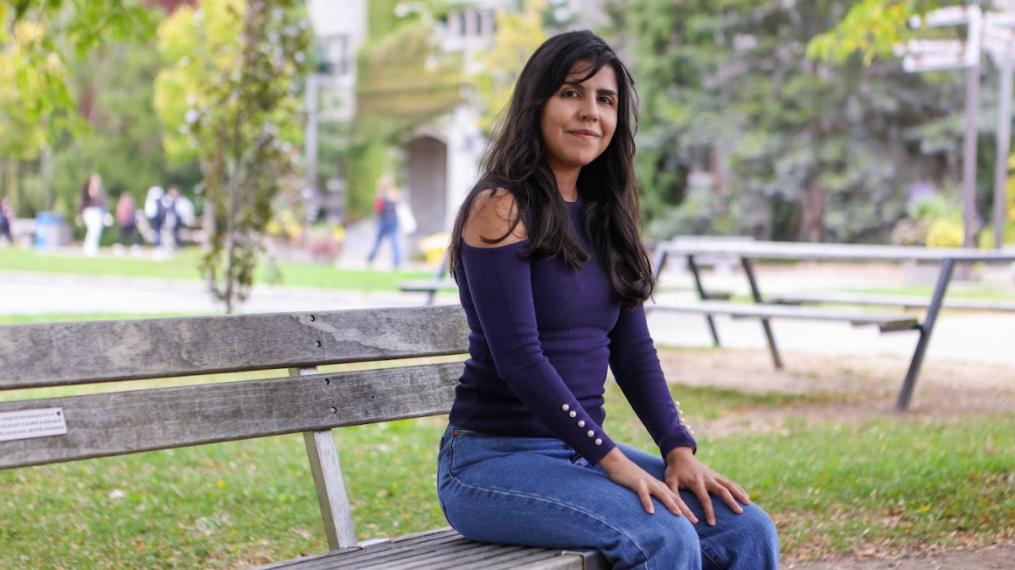Championing Women and Youth in Agri-Food: OAC Alumna Natalia Piedrahita’s Global Impact

When Natalia Piedrahita began her studies at the University of Guelph’s Department of Food, Agricultural and Resource Economics (FARE), she never imagined her research would one day shape conversations at the Africa Food Systems Forum.
Today, as a gender economist working with the Food and Agriculture Organization (FAO) of the United Nations, her work is influencing how governments, researchers, and organizations think about the future of food systems, particularly through the lens of women and youth.
“Women and young people are the future of agriculture and our food systems. But they can only thrive if we give them the right tools, policies, and opportunities to build resilient, sustainable, and prosperous food systems for everyone.” Natalia Piedrahita
Research with Impact
Research with Impact At the 2025 Africa Food Systems Forum, Piedrahita played a crucial role on a FAO report on women in agrifood systems. The study highlights that approximately 76 percent of working women in sub-Saharan Africa are employed in agrifood systems, yet their contributions are often undervalued and overlooked. The report also emphasizes how gender inequality intersects with challenges like climate change, environmental degradation, and food insecurity.
“Having the most up-to-date picture of the opportunities and challenges women face is key to the sustainability of the sector,” says Piedrahita.
Her work reinforces the call for gender-transformative policies, improved data collection, and inclusive governance to ensure both women and youth are empowered to succeed in agrifood. She sees this research as critical in moving beyond numbers and into meaningful action.
Building Skills and Confidence at FARE
Piedrahita’s path to FAO was shaped by her time at the University of Guelph, where she completed both her master’s and PhD degrees from FARE. The supportive yet challenging environment in FARE pushed her to grow as both a researcher and professional.
“FARE is unique because of its community. The faculty are approachable, the programs are rigorous, and you always feel supported,” she says. “It’s challenging, but you know you’re not going through it alone.”
Her advisor, Dr. Getu Hailu, encouraged her to apply theory to real-world issues, a lesson she continues to carry into her work today. The department also provided her with key professional opportunities, including funding for travel to conferences around the world and an internship with FAO in Rome.
“That internship changed my career path,” she recalls. “I spent four months in Rome working as a statistician at FAO. The faculty not only funded my travel but also connected me with the opportunity. It gave me the confidence and experience I needed to step into an international career.”
A Voice for the Future of Food
Now based in Milton, Ontario, Piedrahita works remotely for FAO as a women’s empowerment specialist, building on the momentum of global and regional reports on women in agrifood systems. She is also expanding her focus to youth, recognizing their vital role in feeding the future.
“If youth are the future of agriculture, then we need to ask: what tools and resources do they need to succeed?” she says. “The same applies to women. When you empower these groups you strengthen economies, improve food security, and influence GDP growth.”
Her work is already having a ripple effect, with FAO incorporating gender metrics more intentionally into its global programs and expanding its research into youth in agrifood systems across multiple regions. The FAO’s Commit to Grow Equality initiative aims to turn Piedrahita and her team’s findings into action.
For Piedrahita, it all ties back to her roots at FARE. “The PhD and master’s programs at OAC gave me the skills, confidence, and network to do this work,” she says. “I wouldn’t be here without that foundation.”
As she continues to influence global policy and advocate for underrepresented voices, Piedrahita remains committed to ensuring that women and youth have a central place in the future of food systems.
“Food systems can’t thrive if half the population is left behind,” she says. “When women and youth succeed, everyone succeeds.”